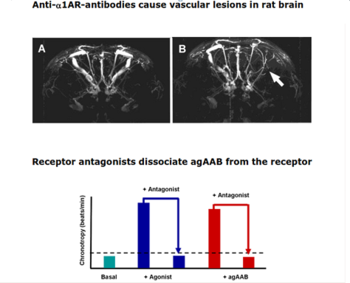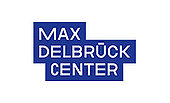Targeting of Autoantibodies to the alpha1-adrenergic receptor and the beta2-adrenergic receptor in Alzheimer’s and vascular dementia
Challenge
Age-correlated dementia causes growing social and economic problems in industrial nations. Among different forms of dementia, Alzheimer’s disease (AD) is the most common. Experimental evidence suggests the pathology of the central nervous system as well as the patients’ cognitive decline be a result of vascular lesions in AD patients’ brains. In addition, autoimmune mechanisms seem to play a significant role in the pathogenesis of Alzheimer’s and vascular dementia: Agonistic autoantibodies directed to the a1-adrenergic receptor contribute to vascular lesions, and agonistic autoantibodies interacting with the β2-adrenergic receptor may increase plaque formation.
The challenge relates to means for detecting, binding, removing and/or neutralising agonistic antibodies associated with dementia, preferably Alzheimer’s disease or vascular dementia.
Technology
Inventive peptides and recognition molecules have been isolated. They bind and neutralize agonistic antibodies associated with dementia. They have been/will be applied in diagnostic methods and kits, solid phases and chromatography devices for apheresis-based treatment approaches, and in pharmaceutical compositions.
Commercial Opportunity
- Diagnostics of agonistic autoantibodies in patients’ sera
- Extracorporal therapy based on the removal of agonistic autoantibodies (e.g. immunoadsorption)
- Pharmacological blocking of the agonistic autoantibody action (e.g. use of receptor antagonists)
Development Status
Extracorporal Immunoadsorption - Clinical Proof of Concept: Six patients with mild to moderate dementia of the Alzheimer’s or vascular type and positive for agonistic autoantibodies were treated according to the established protocol at four consecutive days using the Globaffin adsorber (Fresenius Medical Care). Immunoadsorption proved efficient to remove the agonistic autoantibodies. The follow-up of up to 18 months revealed improvements or stabilisation in cognition of five patients. Only one patient declined in cognition. Notably, almost all relatives reported improved manual skills and mental situation of the treated patients. Further positive effects of immunoadsorption were improvements of spatial orientation, movement and blood pressure. Beyond this project, five patients at two additional locations were successfully treated indicating the demand for therapeutical immunoapheresis.
A more comprehensive clinical study is in planning.
Patent Situation
Patents granted in US (US 9,708,372) and EP (EP 2742065)
Further Reading
Breteler MM (2000) Vascular risk factors for Alzheimer’s disease: an epidemiologic perspective.
Neurobiol Aging;21:153-160
Zhou Z, Liao Y, Li L et al. (2008) Vascular damages in rats immunized by alpha1-adrenoceptor peptides. Cell Mol Immunol;5:349–56.
Karczewski P, Hempel P, Kunze R, Bimmler M (2012) Agonistic autoantibodies to the a1-adrenergic receptor and the β2-adrenergic receptor in Alzheimer’s and vascular dementia. Scand J Immunol; 75: 524–530
Karczewski P, Pohlmann A, Wagenhaus B, Wisbrun N, Hempel P, et al. (2012) Antibodies to the a1-adrenergic receptor cause vascular impairments in rat brain as demonstrated by magnetic resonance angiography. PLoS ONE 7(7): e41602. doi:10.1371/journal.pone.0041602





